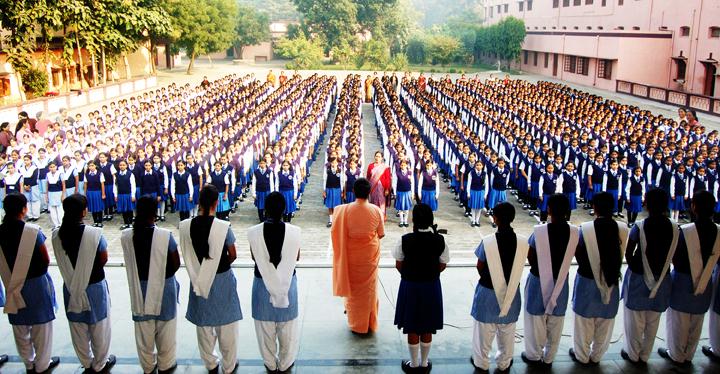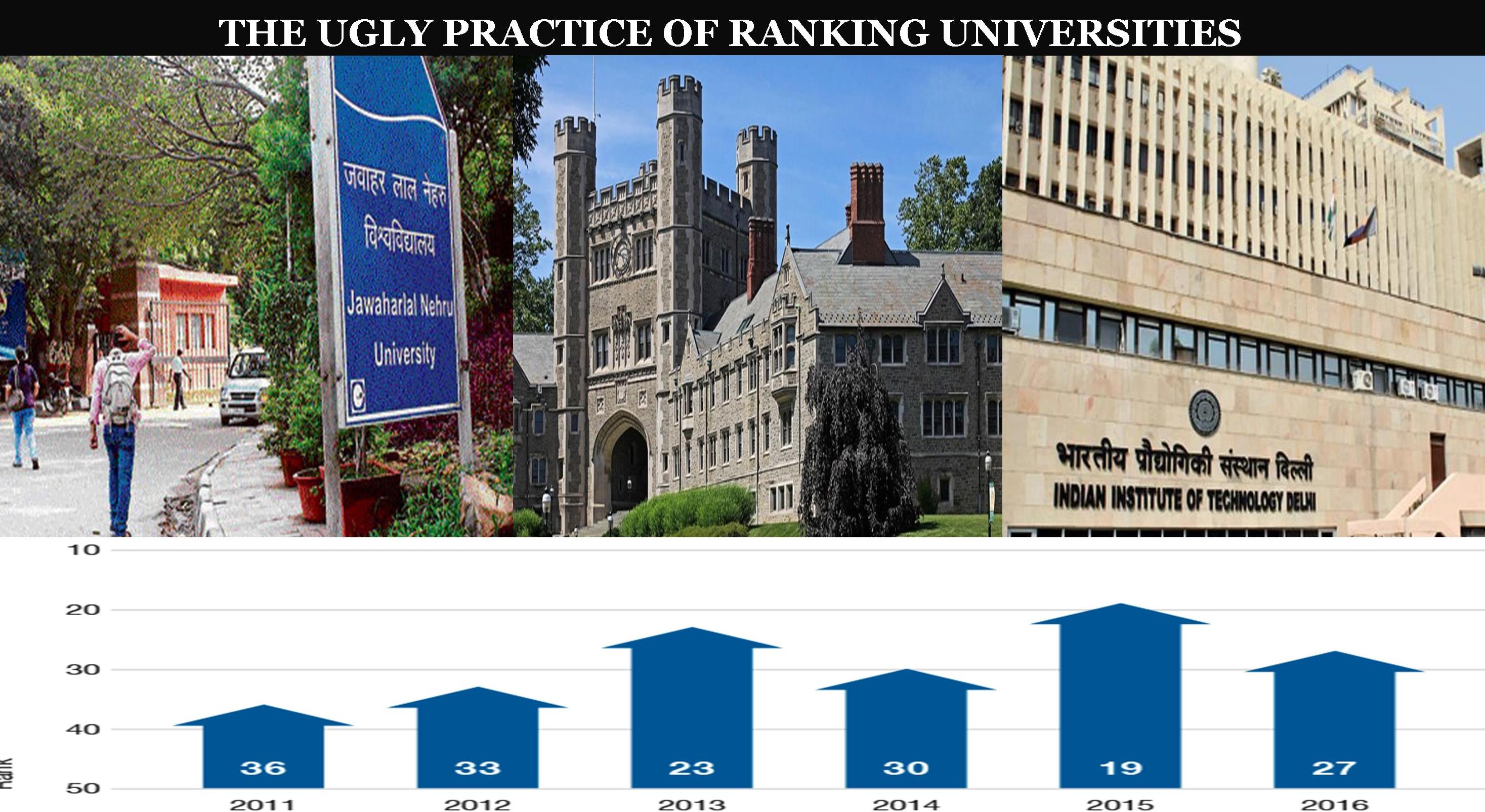In this lucid/illuminating piece, Professor Avijit Pathak has inspired young learners to celebrate sociology, and relate books and theories to lived experiences.
Prof. Avijit Pathak teaches at the Centre for the Study of Social Systems, Jawaharlal Nehru University, New Delhi.
I know that it is primarily because of Amrita Shastry—a student of mine who trusts me unconditionally— that I am here. It is my privilege. I am finding an opportunity to come to this leading college and interact with colleagues, friends and young vibrant students. It is also clear to me that this morning I am going to converse with young students who have chosen sociology and begun to engage with this wonderful discipline. Here is a discipline that takes you to a socially constituted, symbolically enriched inter subjective world characterized by a constant interplay of structure and agency, explanation and understanding, universal generalization and culturally specific truth.
Friends, I wish to invite you to the discipline, and I want you to realize that learning sociology can be a joyful experience, a celebration; it is not merely about book learning, using borrowed words and repeating what is written in the texts that is presented before you as the official curriculum. Learning becomes meaningful when words acquire a soul, and books, far from existing as something to be feared or conquered, are lived, felt and related to the experiential domain. I will make my arguments with simple illustrations.
Twin Reminders
However, before I go deeper into the theme, there are two quick points I want to make. First, please understand that the burden of knowledge often proves to be oppressive. As one of the Upanishads says, if you have read all the scriptures of the world, but not felt, realized and internalized their deeper meanings, you are merely carrying a heavy load of sandalwood, but without getting its fragrance. Believe it; things are not entirely different when we see a ‘knowledgeable’ man or woman that our universities produce. Books and degrees, words and theories, publications and seminars do not necessarily promise wisdom. Hence it is possible to find a professor of poetry who is otherwise anti-poetic in life; or for that matter, you can have a professor of theology who is completely devoid of spiritual awakening.

Second, intellectual cognition or detached analysis of frozen words alone is not sufficient. What is important is the development of all the faculties of learning—the ability to see, feel, intuitively grasp, realize and experience. Only then do we succeed in establishing an organic relationship between words and lived experiences, brain and heart, intellectual cognition and empathic understanding. Take two illustrations. Walt Whitman wrote: To me every inch of space is a miracle. Is it merely an arrangement of words—a grammatically correct sentence in a technically perfect poem? Or is it that the real poetry lies inside? Is it that words constitute merely the outer form of a poem, which is primarily a profound human experience? You see a tiny blue flower blooming; you see an amazing sunset, an old leaf falling from a tree; you see light and shadow; you see a tree; and you have a sense of enchantment. At that very moment, you feel that everything around you is miraculous. Poetry enters your being, your soul. You feel the poem, see the poem, and understand the poem. Likewise, think of Karl Marx’s anguish: The bourgeoisie has left remaining no other nexus between man and man than naked self-interest, than callous cash-payment. It has drowned the most heavenly ecstasies of religious fervor in the icy water of egotistical calculation. It has resolved personal worth into exchange value. As a student of sociology, do you see it, feel it and understand Marx’s anguish? Or is it just a set of written words—frozen, textualized and to be memorized and written in the examination? Friends, don’t see Marx only in a book, in your theory paper. Marx is here—walking with you. You are in the S.N. market; and suddenly a tea shirt captures your attention. On the tea shirt, it is written—My Father is My ATM. What do you see?
A sentence of this kind can be written only in a bourgeois civilization that allows money to measure everything, and transform it into its opposite. So even my father has been reduced into exchange value; the ecstasy or warmth of the relationship has been drowned in the icy water of egotistical calculation. It is like commodity fetishism; the relationship between two human beings looks like a relationship between two objects or commodities. Marx makes sense to you.
You see a tiny blue flower blooming; you see an amazing sunset, an old leaf falling from a tree; you see light and shadow; you see a tree; and you have a sense of enchantment. At that very moment, you feel that everything around you is miraculous. Poetry enters your being, your soul. You feel the poem, see the poem, and understand the poem.
Experiencing Emile Durkheim and Michel Foucault
At this moment, I believe I can take you to the realm of sociological thought. By invoking Emile Durkheim and Michel Foucault, I will try to make you feel and experience the deeper meaning of engaging with thinkers and theories. Possibly, you would realize that learning sociology is essentially about building the bridge between theories and lived realities, brain and heart, self and the world, books and experiences. Let me begin with Emile Durkheim. Your professor would introduce you to his classic The Elementary Forms of Religious Life. You would know that by studying the elementary form of religious practice like totemism (a totem, as his reading of the tribes of Central Australia and North America would suggest, can be an animal or a vegetable) Durkheim was trying to make sense of the religious phenomenon—its symbolism and societal meaning, its rites and rituals centered on retaining a boundary between the ‘sacred’ and the ‘profane’. In religion, Durkheim saw the overwhelming power of the social—the ecstasy of collective conscience, its moral power and its ability to unite, restore and consolidate societal solidarity. For instance, as he said, the god of the clan is nothing than the clan itself, personified and represented in the symbol of the totem. Try to understand the characteristics of ‘totemic beliefs’. First, the totem is a name. Each clan has its totem, which belongs to it alone. The individuals who compose it consider themselves united by a bond of kinship. However, this is not because they have blood relations with each other. They are relatives from the mere fact that they have the same name—the name of the totem. Second, the totem is also an emblem. It is often engraved upon the woodwork and upon the walls. Totemic images are placed everywhere—walls of their houses, their arms, their utensils and their tombs. Moreover, at certain religious festivals the person who is to direct the ceremony wears a garment which represents the body of the totem. Third, the totem has a religious character. The totemic symbol is considered to be ‘sacred’ which should not be allowed to be profaned. It has all sorts of marvelous properties. It heals wounds, gives men force, courage and perseverance; and it depresses and weakens the enemies. In other words, the totem symbolizes the power of the collective. To be religious is to merge with the ecstasy of the collective.

What does it mean for you to engage with a text of this kind? Think of it. You may say, ‘I do not belong to a clan. I am modern. And my individuality is my pride. I have my own autonomous space with my specific passport, election Id, PAN card. I am rational and secular.’ But is it so straight and simple? At this very moment, I take you to the Eden Gardens in Kolkata. You are watching cricket. India is playing against Pakistan. And thousands of young Indian fans like you have begun to cheer the Indian team with the national fag. Some of you have also decorated your faces with the three colours of the national flag. And with a sort of collective chorus—India…India…India—you are dancing, celebrating every moment of your favourite player’s performance. Is it like a new form of totemic dance in the 21st century? Is it that the experience of collective ecstasy remains the same whereas the totem has been replaced by the flag, the clan by the nation, and clan solidarity by cricket nationalism? When you think of it you realize the significance of civic or secular religiosity, you understand the meaning of the fundamental Durkheimian quest for ‘organic solidarity’—the thread of connectedness amidst differentiation and specialized occupations in a largely ‘secular’ world. Your curiosity grows; your interest develops; your ways of looking at the world change. You begin to ask, ‘Is modern nationalism a form of ‘secular religion’, and international sports events are its specific rites that intensify the power of what Benedict Anderson would have regarded as the ‘nation as an imagined community’?
Before I introduce you to Michel Foucault, I appeal to you to see the world around you. For instance, in our times you and I are used to a powerful warning: YOU ARE UNDER CCTV CAMRA SURVEILLANCE. Yes, it is everywhere—in airports and railway stations, in schools and universities, in market complexes and offices, in gated communities and even in our children’s study rooms. Have you ever thought of this practice—the normalization of surveillance? A standard argument is that it is good; it can reduce criminality and deviance; it can identify the suspect; and above all, it makes all of us alert and restores order, civility and peace in society. Is it so simple? Or is it that this all-pervading surveillance indicates something deeper—a form of discipline that continually observes us, classifies us, works in depth on our bodies and minds, and thereby ‘normalizes’ us, and produces automatic docility? With this question when you open the pages of Foucault’s great work Discipline and Punish something happens to you. Foucault begins to talk to you. You realize how the medieval practice of punishment worked—the way, as he gave a vivid description of an incident in pre-revolution France, the torture of the physical body of the criminal was made into a public spectacle. However, with the birth of the modern prison in the ‘classical age’—after the French revolution– the nature of discipline and punishment acquired a different meaning. Instead of physical torture, a ‘calculated, organized, technically thought out’ practice of discipline evolved. It was not limited merely to the prison; it could be seen in every site of ‘micro physics of power’—in hospitals, in mental asylums, in factories, in schools. As Foucault elaborated, with ‘hierarchical observation’ (Bentham’s panopticon—a circular building with an inspecting tower at the centre that observes individuals located in appropriate spaces on the basis of ‘rank’—became a popular architectural design for all these institutions), ‘normalizing judgment’, ‘timetable’, ‘exercise’ and ‘examination’, the techniques of surveillance began to work on us with a ‘military dream of society’—producing bodies that are both subjected and productive, and prompt in emitting appropriate signs, carrying out tasks and performing ceremonies.
These disciplinary practices with the power over population produce bodies of knowledge, classify us, individualize us on the basis of how much ‘madness’ we still have, reduce the gaps from the normative, and then normalize us. As Foucault’s thesis would indicate, our societies are maintained not by army, police and centralized state apparatus, but precisely by these techniques of discipline, these ‘observatories’ of surveillance. Today technology has developed further. From ‘panopticon’, telescope, lens and light beam to CCTV camera; and the eyes that see without being seen are everywhere. So friends, Foucault gives you clarity; you understand this discourse of ‘power-knowledge’, this regime of surveillance, this new form of social control that works on us, and is transmitted through us. So when you receive the warning that you are under CCTV camera surveillance, you understand the meaning of each word Foucault wrote: The judges of normality are present everywhere. We are in the society of the teacher-judge, the doctor-judge, the educator-judge, the social-worker judge. It is on them that the universal reign of the normative is based. And each individual, wherever he may find himself, subjects to it his body, his gestures, his behavior, his aptitudes, his achievements.
From Weber to Blake
Are you losing your patience? Don’t worry. I am about to conclude my speech. Before I end, I want to appeal to you to celebrate sociology; if you see it beyond degrees and certificates and mere professionalism, you would dance with the discipline; you would find the linkage between, say, sociology and poetry. Imagine that in your theory class you have studied Max Weber—his complex engagement with modernity—the growing ‘intellectualization, secularization and rationalization of the world’.

Your professor has told you that Weber could see the ‘iron cage’ of legal/rational bureaucratic authority prevalent in modern institutions; he could see that even though science speaks of the appropriate means to achieve an end, and gives us tools of methodical thinking, it cannot throw light on the ultimate values or the meaning of existence; he could, therefore, reflect on disenchantment—the disappearance of wonder from life . In a way, Weber could see the existential crisis implicit in modernity. You begin to think. And then, in your college you find a professor of English literature introducing you to William Blake’s ‘songs of innocence’. You realize the romantic quest for the re-enchantment of the world—a poetic protest against a world that is recklessly objectified by the instrumental rationality of science. It is a wonderful journey from Weber’s ‘science as a vocation’ to Blake’s prayer:
My mother taught me underneath a tree
And sitting down before the heat of day,
She took me on her lap and kissed me,
And pointing to the east began to say.
Look on the rising sun: there God does live
And gives his light, and gives his heat away.
And flowers and trees and beasts and men receive
Comfort in morning, joy in the noonday.
(*The article is based on the lecture the author delivered in the department of sociology at Jesus and Mary College, Delhi University).
The New Leam has no external source of funding. For retaining its uniqueness, its high quality, its distinctive philosophy we wish to reduce the degree of dependence on corporate funding. We believe that if individuals like you come forward and SUPPORT THIS ENDEAVOR can make the magazine self-reliant in a very innovative way.










